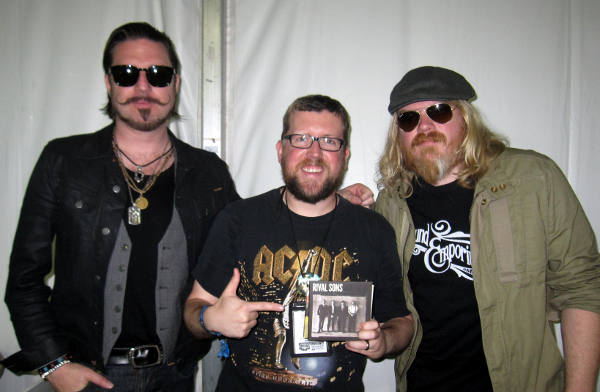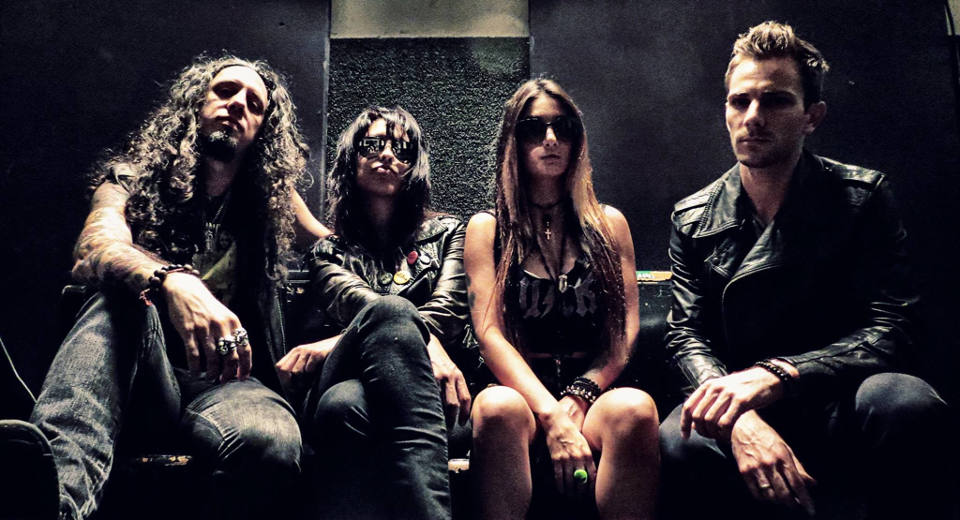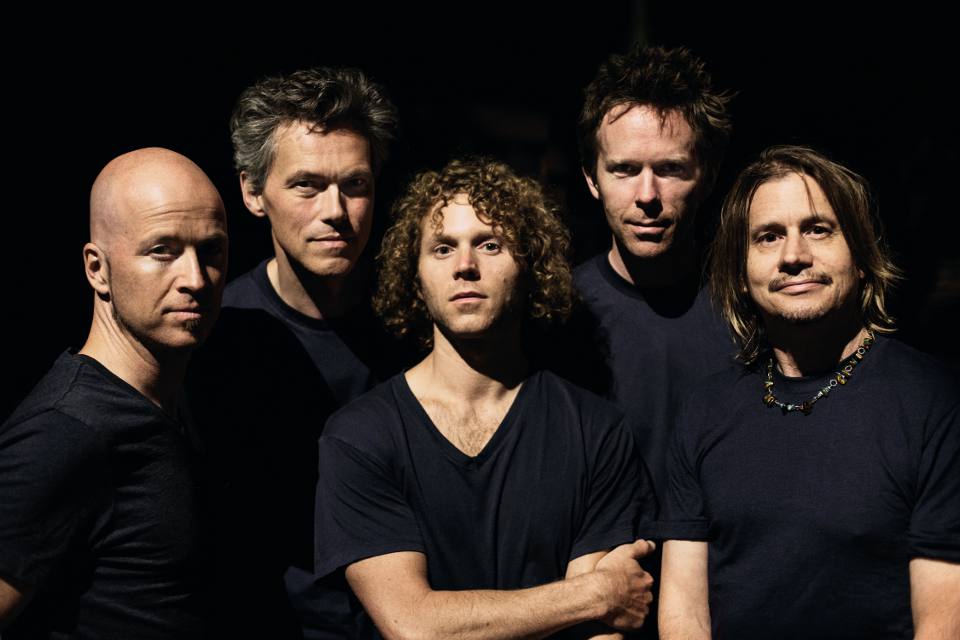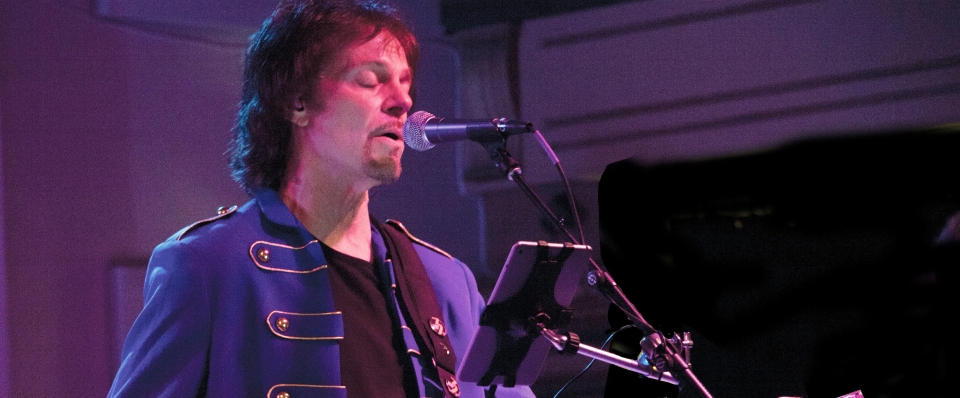
by Alexandra Mrozowska
— Senior Columnist —
When reviewing an album, many ambitious scribes tend to focus primarily on the release’s technical aspects and its overall music content. What often escapes one’s attention, though, is the emotional effort an artist has to make throughout the entire creative process. And what if this experience is even deepened by grief…? And if the challenge is not only to deliver a solid collection of songs, but to carry the torch of someone else’s legacy too?
Robert Berry, an accomplished multi-instrumentalist known from bands such as Hush, Ambrosia and Alliance, knows it well. A member of short-lived late ‘80s ‘3’ project alongside Keith Emerson and Carl Palmer, Berry renewed his collaboration with the former of the two in the mid-2010s – to see it come to an abrupt halt when Emerson died. One difficult decision to reboot the project as 3.2 and two albums later, the tribute to the deceased friend and to the body of work done with him is complete. Less than a month before the release of Third Impression – the final part of the trilogy – via Frontiers Music SRL, we caught up with Robert to discuss it all and more…
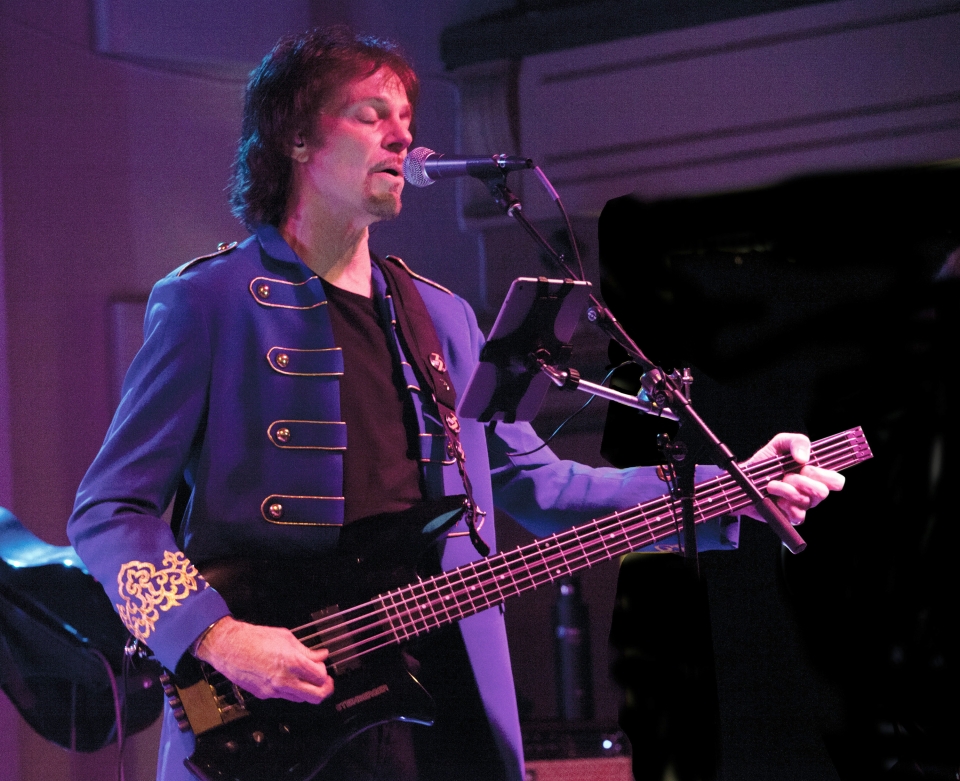
Hardrock Haven: 3.2 is obviously a continuation of the ‘3’ project you’ve been a part of alongside Carl Palmer and the late Keith Emerson. After Keith’s passing back in 2016, you decided to go on with it. Have you ever had any second thoughts about your decision?
Robert Berry: I had second thoughts before the last album The Rules Have Changed came out. Keith and I had decided this [reboot of the ‘3’ project] real quick. 3’s album Live Boston ‘88 came out [in 2016] and Keith had called me just really saying, “Oh my God, we were such a good band, we were so great live…” and everything. I said, “Maybe we should do another one?”, and he replied, “Okay, I’ve got the record contract.” It was all set up and then we lost him right in the middle of it – and for a year I wasn’t gonna do anything. I just thought I couldn’t go on without Keith being here. It was really devastating to me. But then I started talking to his son, Aaron Emerson. Aaron knew how much we’ve worked on and he encouraged me. The record company, Frontiers Records, encouraged me as well – they really wanted the album since we were signed to Frontiers anyway before we lost Keith. So I said, “Okay, I’ll finish the album and when it’s done, I’ll let you hear it and [then] we can decide if it should come out.” And I felt that Keith sort of guided me the whole time I was recording that album and it’s hard to explain, but it came out exactly the way that he and I had wanted it to come out. So the record company put it out and it was very successful, so they wanted a follow-up album. And again, I was like, “Oh gee, I don’t know…” It was very important to me to keep Keith’s name and the legacy in the best light. I wanted to show that he still had the creativity – he just lost his path with some other issues, health issues and stuff that came along. Also before this album I’ve been worried about what people are gonna think, you know. But it has one song – the last song Keith and I wrote – called “Never”. It’s a really great song and everybody, including Aaron Emerson, encouraged me again. He went, “You’ve done a great job on that song. It needs to get out. People need to hear it.” So that’s why it’s out.
Hardrock Haven: And is Third Impression also exactly how you envisioned it to be, the same as it was with the previous one?
Robert Berry: Well, the previous one had quite a few songs that Keith and I wrote. There was only two on there that I didn’t write with him. And on this one, there’s only one that Keith and I wrote together… So like I said, I wasn’t gonna do this album except for Frontiers really wanted me to do a follow-up. I told them, “If I can write the album and record the album before I finish the song that Keith and I worked on, which is called “Never” – if I can get a good enough album – then I’ll finish “Never” and I’ll let you put it out.” But until it was done, I didn’t know what it would be like and again, I felt like I was guided by the memory of Keith, the influence of Keith and my time with him… I just felt like he was with me making up these songs, even though he’s not here. And I won’t be able to do it again. This is the last in the ‘3’ series. But I’m very happy with it – really happy with the songs – and I do feel it represents what Keith and I had decided was gonna be our direction and what we were gonna try to accomplish.
Hardrock Haven: Absolutely. You’ve mentioned “Never” quite a few times and that’s one really special song, but there’s also another one on the album that’s very emotional as well… Could you please elaborate on inspiration behind “A Bond Of Union”?
Robert Berry: I lost my mom a year and a half ago and I wrote this song for her. But I never got to play it for anybody or sing it at a funeral or anything for her… It’s funny ‘cause when I was growing up, I always wanted to be my dad. My dad had a band, my dad had a music store – he did all kinds of things… But it was my mom who really made me who I was. When I didn’t wanna practice my piano, she made me practice it; when I wanted to sing, she found me a singing teacher – everything along the way… When I was twelve years old and I had these guys that were eighteen that got me into their band, she would drop me off at the college parties at eight o’clock and pick me up at one thirty in the morning, so I could play with the band. She really moved my musical life in ways that I could never imagine. So when she died, I had to write something important to me. It was very personal, but when it was done, I felt like it spoke to everybody – no matter if it’s their parents or somebody that nurtured their life as they were growing up. And you know, to nurture a life it may not always mean that it was the best way to be raised. Sometimes, having parents that are mean or don’t support you can make you become who you become too, because you fight them and you struggle to be what you want. Other times, like with me, they supported me in exactly what I wanted to do. And “A Bond Of Union” is about that bond, good or bad – whatever it is.
Hardrock Haven: And what does inspire you as a songwriter in general?
Robert Berry: That’s a hard question, because I don’t really know! I have a recording studio – right now you’re speaking to me at my studio Soundtek… And every day, Monday to Friday anyway, a songwriter comes in with their song and I work with them to produce the music track and to make a foundation for their singing of that song, to be as strong and as perfect as possible. I work with so many artists on their songs that when I write my own songs, they just kind of come out of me and I don’t know where they come from. It just happens and I would say that any second of any day I can actually write a song – but it’s usually when I need one. A lot of times, I won’t write unless I have an album coming out or I have a project I need to write something for. But I always have ideas and that’s one thing that Keith and I had in common. You know, as we speak I have a piano in front of me in the studio which I use to get singers in tune (playing). Keith had a piano in his room and of course he was playing really fancy stuff (playing in Keith Emerson’s elaborate style). And we would write like that, back and forth. He always had ideas and I would always have to interpret them as… you know, I play keyboards, but I’m no Keith Emerson (laughs). So I played it a lot slower, but we would throw ideas like that – back and forth, all the time. He always had ideas and I always have ideas, it’s just the way I am. So, when it comes to writing a song, really I guess the hardest part is what’s inspired me in terms of lyrics. And that’s just a word sometimes. It could be your name and I’m like, “Oh, I’ll write the song!” and here we go. I start writing and it just comes out.
Hardrock Haven: While discussing your creative process, obviously we have to mention again that a part of 3.2 was the process of assembling different song ideas and musical fragments from the time you worked on the material with Keith Emerson. How challenging was it to put it all together?
Robert Berry: Oh boy, it’s hard. It’s difficult but I enjoy it, so it was not difficult for me if that makes sense. It’s very tedious, it’s time-consuming and everything has to be perfect from the sound of the keyboard to the beat of the drums… Everything has to be just right, because I feel a responsibility to make sure it represents Keith in the best possible way and shows people his genius and that he still had it and still created. Especially on the song “Never” as the last thing Keith and I ever worked on together and the last thing he ever did… So there’s a whole pressure I put upon myself to make sure that everything’s just right according to what I think. Now, of course, the other pressure is [that] when it’s gonna be released, I’m gonna be worried about it ‘cause it’s all come from my mind and my fingers and my playing and I don’t know what people are gonna think. So like with you, if you have a favorite song – if you like “Never” – that makes me so much happier and more comfortable. But the day before the album comes out, the day before you hear it, I’m very worried, ‘cause I don’t know what you will think.
Hardrock Haven: And speaking about people’s opinions, back in the late ‘80s the results of your collaboration with Keith Emerson and Carl Palmer didn’t meet some critics’ expectations. If you could go back in time and change anything about [the 1988 ‘3’ project’s album] To The Power of Three, would you later anything about it?
Robert Berry: Yes, that’s a great perspective and a great question, because when Keith and I sat down to do [an album] twenty seven years later, it was to do the album that we thought should be the follow-up from what we learnt recording [the first album] in 1987 and releasing [it] in 1988 and touring in 1988. We knew more of what we should be doing. The first album was put together very quickly – we had a record contract and we went on tour very fast, so we didn’t have time to develop as a band. Twenty seven years later, we had a lot of time to think about it… Definitely Geffen Records had been grooming me for a sort of a “Bryan Adams meets Sting” kind of artist, as straight Rock with some creativity in it. Some of those songs wound up on the ‘3’ album and even though I liked the songs, they weren’t really right for Keith Emerson. Carl had played in Asia, so the fans were more accepting of Carl playing in songs that weren’t super Progressive. But Keith’s [fans], they weren’t accepting. There were a couple of fans in general that would send him letters saying, “Oh, you shouldn’t be doing this – this is like Carl did in Asia,” “This is not for Keith Emerson – you’re ruining your legacy”… And Keith was susceptible to criticism. He didn’t like it and that’s what broke up the band. But in hindsight, they used a lot of my songs that I don’t think were right for the album, but the record company wanted them. So yes, I would definitely go back and do more songs like “Talkin’ Bout” and “Desde La Vida” – and even “Lover To Lover” had more of an Emerson flair to it. Songs that I wrote, like “Runaway”… I love the song, but it wasn’t right for Keith. We had a song called “Chains” on it that was written by somebody else [Sue Shifrin and Bob Marlette]. Again, a great song, but it wasn’t right for the band. At the time, though, I was just so excited – remember, I was the new kid… I didn’t have that much of a career. I had a local band!… That was so exciting to be able to work with my hero Keith Emerson and Carl Palmer.
Hardrock Haven: I can imagine. So, To The Power of Three had this AOR vibe to it and obviously your other bands and projects, such as Alliance for example, have it as well and even more so. Where does this musical diversity come from?
Robert Berry: When I started, my band Hush – my local band here – was a Progressive band, and then we changed into a straight Rock band in the early ‘80s. My roots are in Progressive music… I played ELP songs, Yes songs, Genesis songs and all this – and that’s what my love is, for the real ‘musical’ kind of music… I still like singing the straight Rock too, but I like to keep them separate. And the first ‘3’ album – To The Power of Three album – mixed them together too much. I think the last album The Rules Have Changed and the new album Third Impression are more of a better mix of Progressive Rock with the little bit of the AOR overtones in there. But it’s still progressive, it’s still creative. On the ‘3’ album, we’ve had a few progressive, creative songs and then some that were really AOR – and I think that was a little confusing at the time. So, Alliance you’ve mentioned is with my friend from Boston, Gary Pihl, and David Lauser from Sammy Hagar’s band – that’s straight Rock and we keep it that. We don’t get progressive or anything; it’s just straight Rock and I do like singing that. But it’s [that] I keep it separate from my Progressive stuff.
Hardrock Haven: And in which ways did all those different bands add to your arsenal and your development as a musician and a songwriter?
Robert Berry: I’ve already told you what I do here in the studio every day, working with singers-songwriters. They come in and I play all the instruments, but it’s more important that I sort of arrange their songs and build them the right way. I have learnt many different styles here, because I do have a studio where I record every kind of music. And in every band I’m in, I usually write a lot of the songs. That’s one of the reasons that I’ve worked with different bands and different record companies ask me to write songs with the band because they don’t have as many ideas anymore. So I guess I’ve developed that over the years where I always have an idea, I always have the style of that band. Take GTR with Steve Howe [also Yes, Asia etc.], even before I was with ‘3’. I joined Steve Howe in GTR and I looked at their first album and I thought, “It doesn’t sound like a GTR which stands for the guitar. It sounds like a lot of synthesizers, and I think GTR should sound more like guitars and it should have a little more of this Yes vocals and a lot more of Steve Howe’s guitar.” So when I went about writing with Steve Howe, I brought those pieces out. When I played in the band Ambrosia, which was soulful kind of music, I wrote songs and tried to bring out more soulful stuff. So I identify what I think what the band does the best, and I bring out those ideas in myself because I’ve done a lot of work in the studio. With Alliance – same thing. It’s straight Rock with a drummer from the Sammy Hagar [band] and the guitar player from Boston, and that’s straight Rock stuff. And I try to instill those styles and that thinking into that band. But when it comes to just me being me, I think you’ll find that Third Impression is more exactly what I do, ‘cause I like the perfect blend of guitar and keyboards and Third Impression has a lot of that going on.
Hardrock Haven: As it was already mentioned, you’re classically trained and also educated in music, but what do you think was more valuable in your career – education or your experience and practice as a musician and a producer?
Robert Berry: For me, I’m sort of an unusual combination of all that. I had eight years of classical piano and majored in music in college, so there’s a lot of structure and a lot of capability in the playing and everything you’ve learnt. I majored in voice in college, so I had to sing opera too, German, French, Italian… But to do what I do now and to sing the way I sing, I had to leave it all behind and forget that training. I had to learn more from the street, you know, from working with Sammy Hagar and whoever in the studio. I had to learn from the ground up, not from the books, let’s say. It’s a combination of that education and schooling and practicing all these years that makes me capable of doing what I do with the third ‘3’ album, the 3.2 album. But it’s my streetwise training from Sammy Hagar or Greg Kihn I work with now and whoever else that lets me write the kind of songs and the type of lyrics and sing the way I sing. So I guess it sort of flows out of me from life experiences in what I do, but it’s the education that makes me capable of then putting it together and producing it the way I want it to go.
Hardrock Haven: You’ve also released a couple of solo albums throughout the years, and usually musicians do that either to redefine themselves or avoid compromises with other members of the bands they’re in. And how is it in your case?
Robert Berry: I’ve mentioned that I always have ideas for song and that I always can make [a song] on the spot if I need to write something or need to record something. And what happened with my first solo album [Back To Back, 1985] is [having] an album of songs I couldn’t use for my band Hush. They were just different. So I put them all on the album and I sent it out to record companies and that’s when Geffen heard it and liked what I was doing. So I didn’t have a purpose for that except for there were songs that I couldn’t use anywhere else in the bands I was in. And all of a sound that one wound up being a magical album for me that opened my career to a more international level. Later on, it was Frontiers Records’ President Serafino [Perugino] who found me on the old social network MySpace and said, “I really think you’re a great artist.” And I thought, “And who is this guy?” So I said, “I see you work for Frontiers Records, so if I want to do an album for the label, who would I talk to?” And he said, “I’m the President, so you’d talk to me. When do you wanna do the album?” And all of a sudden I had to write an album, which I did. So I don’t do it for change or reboot or anything. I just do it because that I have a lot of material and a lot of ideas and it seems like there’s an outlet for that through record companies or through bands. And you know, I gotta say I’m just very, very lucky that I keep getting these connections and getting to do these things… I guess it’s hard to explain. I’m just very lucky!
Hardrock Haven: A matter of talent too! These days we have many projects and bands that don’t tour for various reasons, but I believe the last time you toured quite extensively was in 2019. Do you plan to provide a live support for Third Impression too as soon as the situation with the live music industry is back to normal?
Robert Berry: Definitely. I put together a great band and we did a twenty-seven-city tour here at the West Coast and East Coast, and we were planning to go to Europe in 2020, but of course everything got shut down. We can’t wait to have things open up so we can get out and support this album. Also, the [2019] tour involved my whole history – from the label Magna Carta I was on to the solo albums that Serafino had me do for Frontiers, to the ‘3’ album and The Rules Have Changed… and now it will include Third Impression as well. So when things do open up and we get back out there, my history is even longer and more involved and I’d play a few more songs. And as I said, I put together a great band. There’s Andrew Colyer from the band called Circuline – a fantastic keyboard player, and he had to learn all Keith’s parts from “Karn Evil 9” and my solo albums and the ‘3’ album… He did a fantastic job. Jimmy Keegan is a drummer from Spock’s Beard – a fantastic drummer and a great singer who sings all our harmonies. And there’s also [the guitarist] Paul Keller, who’s been with me since my first band Hush, a local band that did well here in the Silicon Valley area… Paul and I have been playing together for forty years. So it’s a really good band and we brought that history of music out and we had such a good time that we can’t wait to do it again.
Hardrock Haven: Speaking about the concerts, many reviewers praised your including the reworked versions of Progressive Rock classics in the set – songs by Yes or Jethro Tull, for example – which originate from the series of tribute albums you’ve been a part of. Also the first album by ‘3’ featured a reworked version of The Byrds’ classic “Eight Miles High”. What kind of experience is it to rearrange something that is so deeply rooted in people’s memory in its original form?
Robert Berry: That’s a great question, because I have taken on top songs of a lot of those bands. Like in the past, when Magna Carta called me and said they wanna do a [Jethro Tull] tribute album, I said that I don’t wanna work on that. I don’t like it when new players play exactly what the old players have been playing – they just copy it and they put out their version. If I’m gonna listen to Jethro Tull, I wanna hear Jethro Tull. No one’s gonna do it better. That is, unless somebody has an idea – which I had [for Jethro Tull]. I thought, “If I make the beat stronger and I make the key of the song change in the chorus for my vocals sound like me and not like I’m copying Ian Anderson and I make it stronger, kind of more rockin’… then I’ll do it.” And the record company said, “Well, okay, do it and let us see.” And they loved it! And I have a letter from Ian Anderson saying how much he liked my version of “Minstrel In The Gallery”. It’s different, but it pays tribute to all the important parts. And actually I told Magna Carta the same thing when they were doing the Yes tribute album. I said, “If I can do “Roundabout”, I’ll do it.” And they said, “That’s an iconic Yes song – are you sure you wanna take that on?” My answer was, “Yes, I do, because I’m gonna do what I think Yes would do right now and I’m gonna ask Steve Howe to play at the end of it with me.” So I started “Roundabout” and I made it much heavier – I turned down to D, low key, and I changed the bass line a little bit. And again, I’ve got a letter from Steve Howe telling me he likes the bass line better than the original, and he loves the version… and then of course he played the end part, he played the acoustic guitar (humming). He played that for me. So, it was a challenge for me to do these songs but also, as a fan of those bands, I thought I knew what the bands would accept and think “That’s cool.” And also with the fans, who would say “Wow, I like that. It’s not changed so much that it’s a different song, but it definitely has a different interpretation.” And it’s a bit of a puzzle and something I enjoy doing if it’s a song I love. And so far I’m very lucky; even “Karn Evil 9” with Jordan Rudess [Dream Theater] is an amazing version that Keith thought to be really great.
Hardrock Haven: Definitely. And as we discuss rearranging classic songs, we can’t forget another side project of yours which is December People – A Classic Rock Christmas. What’s inspired the project and how important is its contribution to charity for you on a personal level?
Robert Berry: (laughs) The charity part of that project is very important. All the guys in that band are from famous bands and we believe that if every little town or city took care of their own people, we could reduce hunger and homelessness – not a global effort, but right there in your own town. We should take care of our own, so that’s our motto. But December People came about because a record company asked me to do a Christmas album and I said, “I don’t wanna do a Christmas album, I don’t wanna play Christmas songs!” And they said, “We want you to do a Christmas album and you’d figure out how to do it.” And I thought about it, and I thought, “You know what? I’ll do the classic Christmas carols that you can sing already, but I’ll do them in the style of famous bands that you know.” Like “’Twas The Night Before Christmas” done in the style of “Stairway To Heaven”. So you know exactly how the song’s gonna be sung, ‘cause you know the melody from when you were little, but you don’t know the style and it makes that a mystery and it makes it something special to put together and see if it’s gonna work. I tried it, and the record company loved it – we have four or five albums out now.
Hardrock Haven: So before we run out of time, what are your plans for 2021 and any message you’d like to wrap our conversation with?
Robert Berry: Well, we’re gonna try to tour at the end of the year, if things open up. We’re excited about it. And I’m really proud of Third Impression and I just hope that people will like it and watch these really great videos that have been done and are [available] on YouTube. And I appreciate your time – you’ve been great to talk to – so I hope you’ll like the album too!
Photo credits: Dave Lepori

